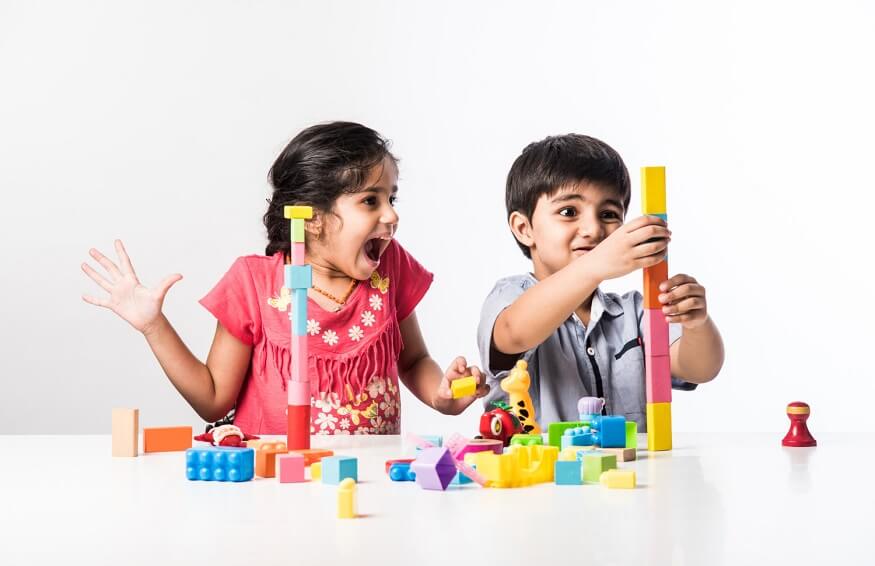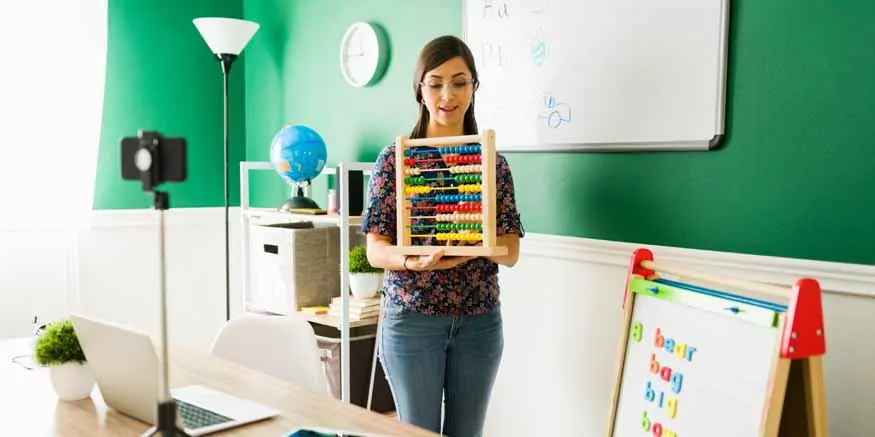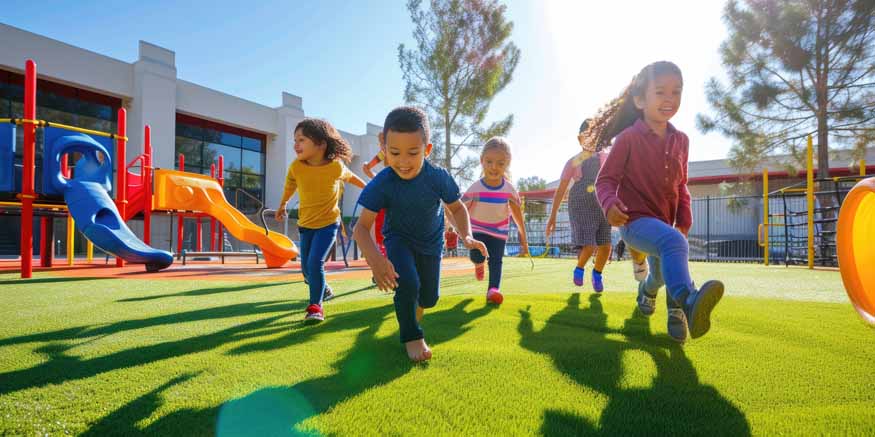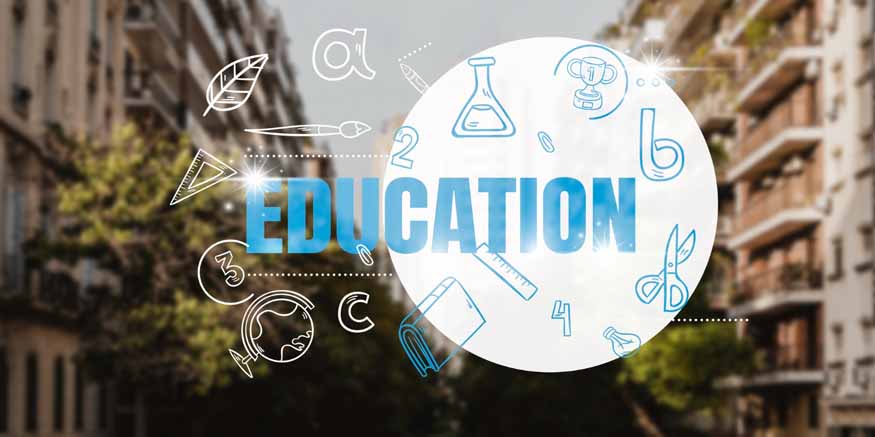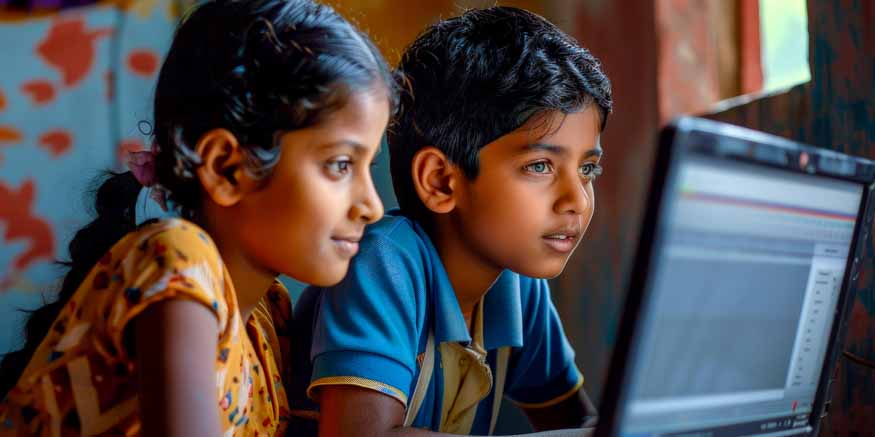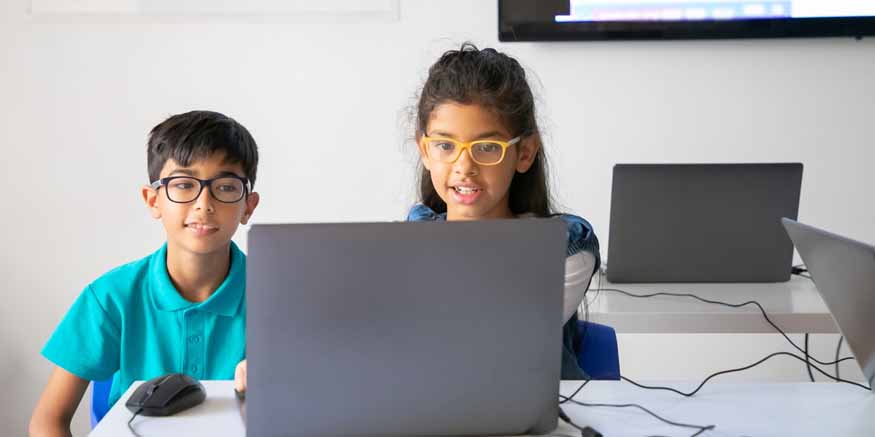Children usually find classroom lectures boring. The lack of physical movement and mental engagement makes sitting through lectures tedious and unexciting. On the contrary, learning by doing is the true form of immersive learning which yields the best results. Engaging in activities invokes multisensory immersion thus enhancing the quality of learning. It also makes the learning process fun for students. As a result, learning-based games and activities have found much popularity among students, teachers, and parents alike.
Benefits of learning through play
For early-age children, playing is an essential activity for the development of their minds and body. Mixing learning in these games simply multiplies the benefits. It is important to engage children in meaningful games which are much more than just a way to entertain them. Smartly designed game activities can involve the development of both cognitive and motor skills. Games such as Scrabble, puzzles, riddles, monopoly, and even the most popular video games require children to solve problems and think of solutions. There are plenty of language-based games such as crosswords and Scrabble help enhance the learning skills of children. Engaging in games involving physical activities such as sports help in developing motor skills in children. Kids also learn a lot of life skills such as teamwork, collaboration, emotional intelligence, work ethics, hard work, etc while engaging in team sports.
Even complex scientific concepts can be easily learnt through play activities. For example, take a heavy box and ask students to first try and move it by pulling it. In the second round, ask them to move the box the same distance while pushing it. Now ask them which required more effort. Then try to explain to them the concepts of force and resistance, and how it acts differently in the push and pull scenario. This concept of physics can be explained very easily in this manner but will take a lot of effort to theoretically explain it in a classroom with chalk and blackboard. Another popular example of teaching counting to students is to take them near a railway track and ask them to count the number of bogies of a train passing by. Advanced students can even attempt to measure the speed of the train by using a stopwatch and a measurement tape.
Effective ways to incorporate learning through playing in traditional learning settings.
Train the Teachers
Teaching through the use of play activities is a skill and is not easy for everyone to execute on the fly. Educators must be well-trained in designing meaningful playful activities. If the teachers are not well trained in using play activities for learning, it might prove to be counterproductive and teachers might lose control of the class and their learning journey. Train-the-Trainer (TTT) sessions conducted by gamification experts can go a long way in upskilling teachers to effectively use play activities for learning in the classrooms.
Include in teaching plans
Designing play activities to deliver specific learning is a tedious task. It takes a lot of effort, thinking and planning to come up with suitable activities that will deliver the learning. This might lead to teachers subconsciously avoiding and taking the relatively easier route of lecturing. Schools must insist on including play activities in the lesson plans of all the courses. Teachers must think of activities that they plan to use to teach certain complex concepts. The internet today is a big and easy source of such activities.
Access to a laboratories
Laboratories are an excellent way to help children learn through play. Equip the laboratories with real-life-based experiments. Laboratories can be equipped with real-life objects for children to learn how stuff works, or replica models to simulate the working of complex scientific phenomena. Imagine learning about our solar system with an exact scaled-down replica of the solar system. Conducting DIY science experiments is another extremely playful way of learning about complex scientific phenomena. Labs must be well equipped to enable various other play activities involving, science, sports, art and craft, DIY (Do It Yourself), etc.
Choose appropriate activities
The choice of activities has a significant impact on using play activities for learning. Choosing the wrong activities can lead to improper learning, chaos in class, disengagement of students, and many other undeniable outcomes. The execution of play activities must be meticulously planned. Teaching objectives must be well-defined. Step-wise execution must be planned. All materials required to enable the activity must be arranged well in advance. Teaching moments must be well decided in advance. Various possible scenarios must be visualised in advance and alternative courses of action must be planned.
Debriefing
Debriefing is a session conducted at the end of any activity. It is meant to summarise and discuss the learning derived from the activity. We cannot assume that children will engage in an activity and they will realise the learning on their own. The purpose of debriefing is to stimulate the minds of the children to think about the activity they engaged in and self-realise the learning from the same. It’s a time for reflective thinking. If done well, debriefing could be a big “aha” moment for children to unearth deep learning about their natural behaviour and thought process. Debriefing can also be an avenue to make the children share their individual experiences and learning with the rest of their classmates. This brings out unique perspectives and enhances peer learning.
Not just for children
“Play activities are only for children” is a myth. Learning through play activities is as relevant to a 3-year-old as it is to a 63-year-old. Most top institutions of higher education use active learning methods such as role plays, games, activities, and simulations to engage adult learners and deliver what is popularly known as experiential learning. In short, learning through play activities can be leveraged as a strategy for all grades.
Also Read: Inspiring a paradigm shift in education with Nature Based Learning
Learning through play activities and games runs through the pedagogical DNA at EuroSchool. We have state-of-the-art facilities that enable students to learn through activities and games. Our educators are well-trained in leveraging games and activities to make complicated learning concepts easily palatable for our students.

